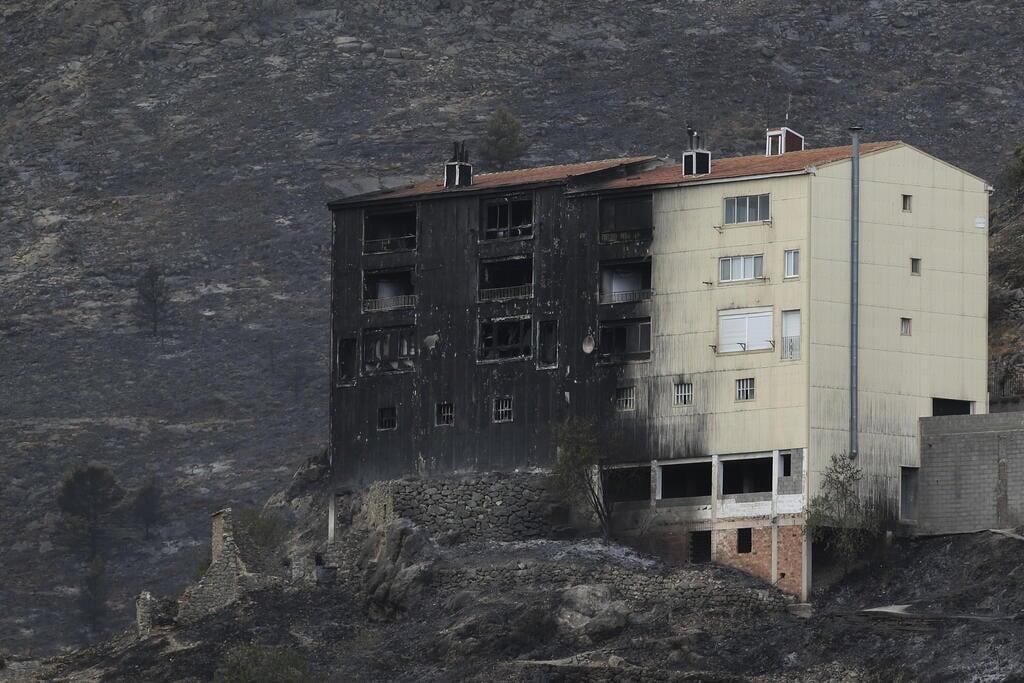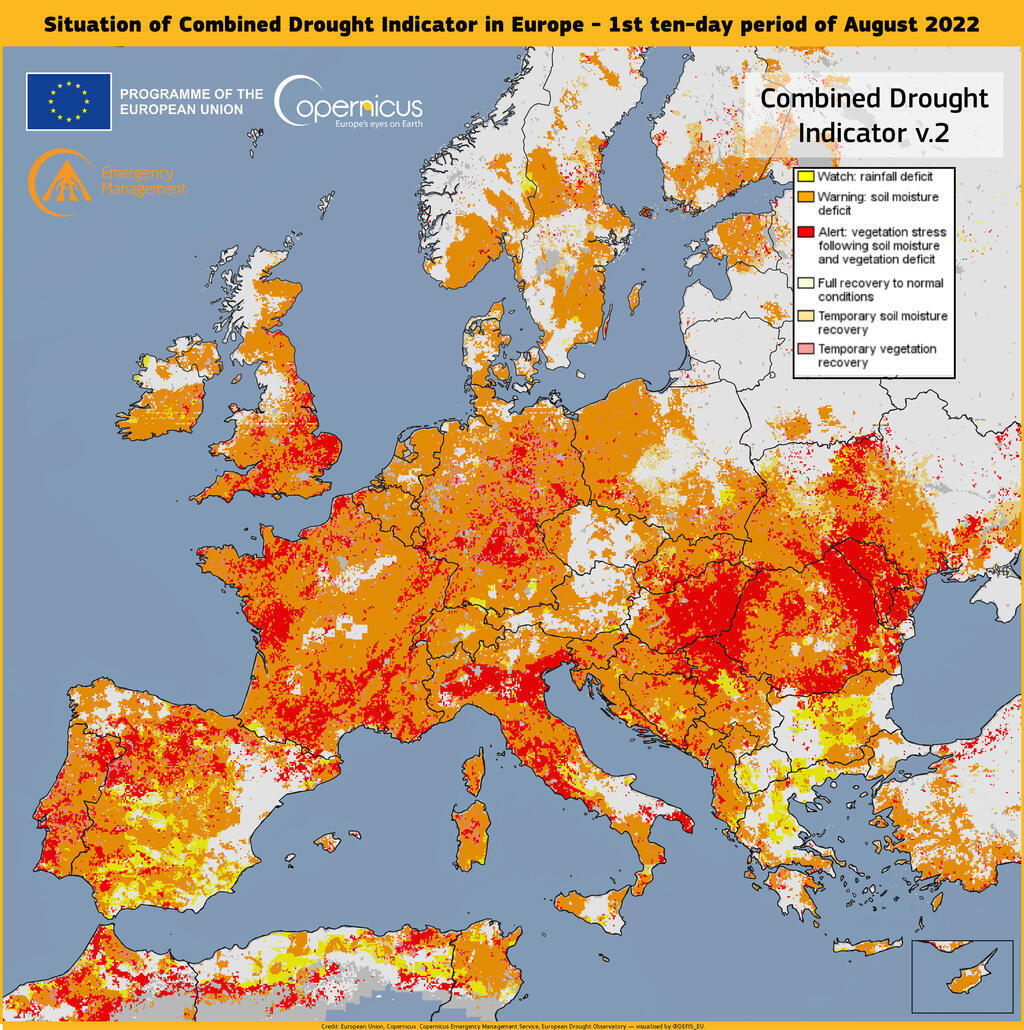Getting your Trinity Audio player ready...
"Climate change is taking a major human, economic and environmental toll in Europe, the fastest warming continent of the world," according to a report published on Monday by the World Meteorological Organization (WMO) and European Union’s Copernicus Climate Change Service. "The year 2022 was marked by extreme heat, drought and wildfires. Sea surface temperatures around Europe reached new highs, accompanied by marine heatwaves. Glacier melt was unprecedented," the report found.
More stories:
"Europe has been warming twice as much as the global average since the 1980s, with far-reaching impacts on the region’s socio-economic fabric and ecosystems. In 2022, Europe was approximately 2.3 °C above the pre-industrial (1850-1900) average used as a baseline for the Paris Agreement on climate change, resulting in the hottest summer on record in Belgium, France, Germany, Ireland, Spain, Portugal, Switzerland, Luxemburg and the UK.
But it is the population in the poorest countries on the planet who are suffering most although they were not the major contributor's pollution emissions caused by the use of fossil fuel.
Rapid climate change in the northern hemisphere has a profound impact on the rest of the world. "The high temperatures exacerbated the severe and widespread drought conditions, fueled violent wildfires that resulted in the second largest burnt area on record, and led to thousands of heat-associated excess deaths,” WMO Secretary-General Prof. Petteri Taalas said.
Heatwaves were responsible for more than 16,000 deaths last year while floods and storms caused damage at a cost estimated at two billion dollars. "Unfortunately, this cannot be considered a one-off occurrence or an oddity of the climate," Copernicus Director of Climate Change Services, Dr. Carlo Buontempo said. "Our current understanding of the climate system and its evolution informs us that these kinds of events are part of a pattern that will make heat stress extremes more frequent and more intense across the region,” he said.
"In 2022, glaciers in the European Alps experienced a new record mass loss in one single year, caused by very low winter snow amounts, a very warm summer and Saharan dust deposition, according to the report. Glaciers in Europe lost a volume of about 880 km3 of ice from 1997 to 2022. The Alps were worst affected, with an average reduction in ice thickness of 34 meters," the reports stated.
The oceans, "Average sea surface temperatures across the North Atlantic area were the warmest on record and large portions of the region’s seas were affected by strong or even severe and extreme marine heatwaves. The rates of surface ocean warming, particularly in the eastern Mediterranean Sea, the Baltic and Black Seas, and the southern Arctic were more than three times the global average." The report also noted that the rising sea temperatures, "led to migration of species and mass extinctions, arrival of invasive species, and disruption of ecosystems and biodiversity."
Precipitation dropped in 2022 for the fourth consecutive year in the Iberian Peninsula, and for the third year in the Alps, impacting agriculture and water reserves.
But there was still hope. Solar energy for the production of electricity rose by 22.3% reducing by up to 20% the use of fossil fuels and coal. The EU committed to at least a 42.5% growth in renewable energy production by 2030.




